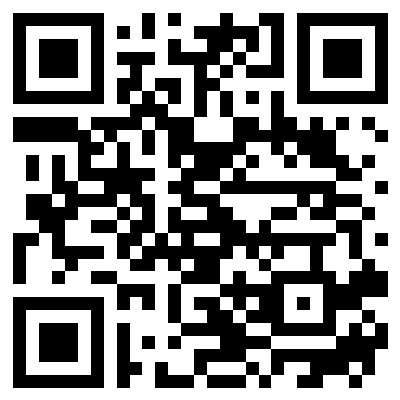Essay
Bill HF4373
Bill HF4373 is a bill that prohibits book banning from public libraries in Minnesota. It’s a policy that protects the freedom of public libraries and does not limit access to books. It enforces that all public libraries should provide information on historical and current events from different points of view. The bill says that a public library should not ban, remove, or restrict access to a book based on the viewpoint, message, or opinions it conveys to people. Nothing should limit a person's ability to access current or past information.
I believe that bill HF4373 is important to implement in Minnesota because of what's happening now in the United States of America. Particularly what's happening in more southern republican states. Children in the state of Florida can’t check out certain books based on the contents, for example in Florida minors cannot check out books such as “Rainbow Fish” because of it’s contents. Minors should not have to have their parents be present and consent to them checking out books to learn about history, gender, sexuality, etc. Books should not be banned from public libraries based on their contents because it reinforces ignorance on topics that are important to know. And re-enforces the idea that history repeats itself if not taught to the next generation.
The history of book banning itself has skyrocketed in recent years. The issue is one of the most talked about on social media and by book readers. Book banning has always been deeply rooted in religion. In the 17th century, Puritans believed that certain books were dangerous to their religion and looked for ways to restrict them. Even punishing people for example by banishing them, when they distributed or consumed the banned books. Most of these books were science-related literature or even just Christmas carols. Even William Shakespeare's work was banned for a long time by the Puritans. Throughout history though, book banning with the reasoning of religion has always failed. Because it showed the harm of banning books, and demonstrated it as a way to gain power over people.
Book banning has also been an act of racism, censoring Black American history. Many school districts across the U.S. have banned books talking about black history, trying to erase what has happened to Black Americans. These school districts have banned books such as The Bluest Eye, in an attempt to silence Black writers. Many American school districts have tried to falsify history, teaching children a false version of history leading to them denying later in life what has happened to Black Americans. Racism in book banning is also rooted in Jim Crow laws and White supremacy, which made it impossible for Black Americans to pick up a book.
Some schools and libraries argue that children should not be exposed to books depicting sex, violence, drug use, gender, or any other “inappropriate” topics in a library. A survey in 2023 by BookRiot and the EveryLibrary institute showed that 60% of parents agree that school libraries should restrict access to certain books and have parental permission to check out books. These parents believe they should have the right to restrict access to books their children read. And that children should not be exposed to any of these topics, let alone at school. A lot of conservative groups like Moms Of Liberty have put pressure on public libraries and schools to ban books that represent the voices of lgbtq+ and Bipoc individuals.
In 2022 the U.S. saw the largest number of attempted book bans in more than 20 years. Most towards books by lgbtq authors, and that talk about being queer. Book banning has been an attempt to silence voices, and try to erase the history of lgbtq+ individuals. Books such as Gender Queer, This Book Is Gay and Lawn Boy. Have been criticized for their queer themes, causing them to be banned from libraries and schools. Books like these have helped people find their identity, helping them be more comfortable with the idea of being queer. And making being lgbtq+ more accepted in society. The banning of these books discourages lgbtq+ people from expressing themselves and can make lgbtq+ people feel like there's something wrong with them.
In 2022 attempts to ban books doubled since 2021, particularly in more southern states. The reason why this bill should be passed is to protect people from having their access to books limited in Minnesota. This bill personally affects me because I am a Palestinian-American student living in Minnesota. I want to be able to continue to access books that widen my knowledge and don’t keep me in a bubble of false history. Passing bill HF4373 would move Minnesota in the right direction and set the example for other states to follow suit in not banning books from public libraries or schools based on the book's contents.
Bibliography
Track bill
Bill HF4373
Introduced To House: February 28, 2024
https://trackbill.com/bill/minnesota-house-file-4373-book-banning-by-public-libraries-and-school-libraries-prohibited-and-private-right-of-action-created-and-attorney-general-enforcement-provided/2289098/
National Geographic
History of book banning in the United States Of America.
Date Published: September 20, 2024
https://www.nationalgeographic.com/culture/article/history-of-book-bans-in-the-united-states
Care Harder
History of book banning related to religion.
Date Published: April 14, 2024
https://www.careharder.com/blog/history-of-religious-book-bans#:~:text=In%20the%2017th%20century%2C%20the,books%20deemed%20heretical%20or%20offensive
Naacp
Book bannings promoting anti-blackness to youth.
Date Published: May 15, 2023
https://naacp.org/articles/book-bans-act-policy-violence-promoting-anti-blackness
Britannica
Book banning pros/cons debate, should books be banned?
Date Published: October 17, 2024
https://www.britannica.com/procon/book-bans-debate
Nypl
Queer book banning in the last few years, what books have been banned?
Date Published: June 23, 2023
https://www.nypl.org/blog/2023/06/23/lgbtq-titles-targeted-censorship-stand-against-book-banning

